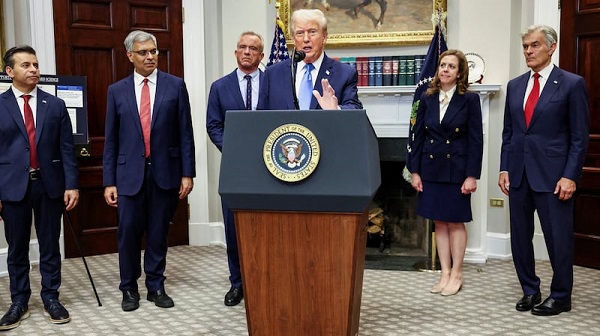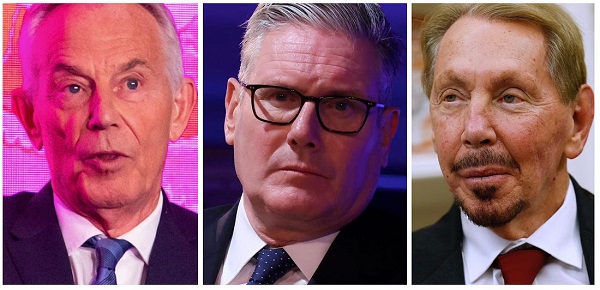Economy
Oil markets stumble as sanctions, tariffs and oversupply collide

This article supplied by Troy Media.
EU sanctions, OPEC+ shifts and political risk are fuelling volatility in oil markets
Crude oil markets are being pulled in every direction—and no one seems to know where they’re headed next.
After weeks of internal debate, the European Union has now imposed its 18th package of sanctions against Russia since the start of the Ukraine war, tightening its grip on Russian oil exports. The latest measures reduce the price cap on Russian crude from US$60 to US$47.60 per barrel and target more than 100 additional “shadow fleet” tankers—vessels used to move oil covertly to bypass sanctions. EU leaders say the goal is to align the cap with prevailing global market prices and further restrict Russia’s energy revenues.
The price cap system, introduced by the G7 and EU in late 2022, allows Russian oil to be sold to non-Western countries—such as India and China—only if it is priced at or below the cap. Western companies are prohibited from providing key services like shipping, insurance or financing for any Russian oil sold above that limit. Since most of the world’s maritime insurance and oil shipping is handled by Western firms, the cap gives the West
leverage to constrain Russia’s oil revenue without cutting off supply completely.
By lowering the cap from US$60 to US$47.60, the EU is tightening that squeeze, making it harder for Russia to find legal routes to sell oil at higher prices.
But the measures go beyond pricing. A full transaction ban has been imposed on the Nord Stream 1 and 2 pipelines—infrastructure built to carry natural gas from Russia to Europe— halting any further development or use. The EU also expanded restrictions on traders, transporters and entities that enable Russian energy flows, including a major Indian refinery linked to Rosneft, Russia’s state-controlled oil company.
In theory, these steps should tighten global oil supply and put upward pressure on prices. In practice, the response has been muted. The United States hasn’t adopted the lower cap, and traders largely expect Russian crude to continue flowing through grey and black markets. Many believe the impact on global supply will be minimal, at least for now.
The EU also banned imports of refined petroleum products made from Russian crude that are processed in third countries—a common sanction workaround—but exempted close allies including Canada, the U.S., the U.K., Norway and Switzerland, which are already aligned with G7 restrictions.
For Canada, a resource-rich country with a globally integrated oil sector, these developments matter. Global oil prices influence gasoline and diesel costs, heating fuel and shipping rates. They also affect Alberta’s oil and gas industry—a major driver of national GDP and federal revenues. When energy markets wobble, the Canadian economy often feels the ripple effects.
Adding to market tension is the spectre of oversupply. OPEC+, the alliance of oil-producing countries led by Saudi Arabia and Russia, had planned to boost production by 548,000 barrels per day in August, with a similar increase in September. That announcement cooled market sentiment temporarily. However, Bloomberg reports suggest the cartel is already considering a pause in output hikes come October, reflecting concerns about a global demand slowdown and swelling inventories.
The International Energy Agency warns that crude stockpiles are growing at a rate of one million barrels per day, with a projected surplus by the final quarter of 2025. That surplus— equivalent to 1.5 per cent of global crude consumption—could push prices down if demand weakens further.
Meanwhile, geopolitics continue to add instability. Iraq’s government recently approved crude exports from its semiautonomous Kurdish region via the Iraq–Turkey pipeline, which could inject additional supply into the market.
In Washington, U.S. President Donald Trump has signalled his administration is considering tougher economic measures on Russia, including the possibility of secondary tariffs targeting energy exports. But most traders remain skeptical that such steps would disrupt global oil flows in the near term.
Even recent signs of strength in the U.S. economy—normally bullish for energy demand—haven’t lifted prices decisively. The ongoing tariff battles, lurching between escalation and retreat, have only added to the confusion. Oil markets have grown wary of trying to predict outcomes based on political posturing.
Without clear coordination among major players, volatility will remain the market’s default setting—and that spells trouble for oil-dependent economies like Canada’s.
Toronto-based Rashid Husain Syed is a highly regarded analyst specializing in energy and politics, particularly in the Middle East. In addition to his contributions to local and international newspapers, Rashid frequently lends his expertise as a speaker at global conferences. Organizations such as the Department of Energy in Washington and the International Energy Agency in Paris have sought his insights on global energy matters.
Troy Media empowers Canadian community news outlets by providing independent, insightful analysis and commentary. Our mission is to support local media in helping Canadians stay informed and engaged by delivering reliable content that strengthens community connections and deepens understanding across the country.
Economy
Reconciliation means clearing the way for Indigenous leadership
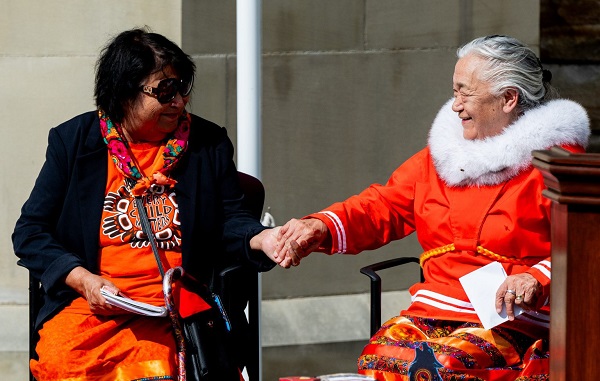
From the Resource Works team.
On Truth and Reconciliation Day, Canadians are asked to honour residential school survivors and to support the families and communities who must live with that history.
It also calls for action, not mere commemoration. The Truth and Reconciliation Commission called for structural change in Canada, and that means clearing the way for Indigenous leadership across this country.
Economic reconciliation is a practical journey that shifts decision-making and ownership towards First Nations and Indigenous people more generally.
Throughout B.C., First Nations are already practicing what that looks like. The Osoyoos Indian Band has built a diverse economy in tourism, wine, and recreation that has sustained steady jobs and revenue.
“I think all Native leadership need to get the economic development focus going on and make the economy the number one issue. It’s the economy that looks after everything,” Chief Clarence Louie has said. That sense of mission, along with assets like Nk’Mip Cellars and Spirit Ridge, has helped to turn Osoyoos into a B.C. success story.
On the coast, the Haisla Nation is leading in innovation in the LNG sector. In 2024, the Cedar LNG facility was granted a positive final investment decision, along with the Haisla’s majority ownership of the $4 billion project.
“Today is about changing the course of history for my Nation and Indigenous peoples,” said Haisla Chief Councillor Crystal Smith during the long approval process. By seeing the project through, Haisla ownership has created the means to fund language, health care, and opportunity for generations that had found all of that out of reach.
In the Lower Mainland, the Squamish Nation’s Sen̓áḵw development is one of the biggest projects in the Vancouver real estate market, and will become an asset for decades to come.
“This project is not just about buildings, it’s about bringing the Squamish People back to the land, making our presence felt once again in the heart of our ancestral territory, and creating long term wealth for the Squamish Nation,” said Council Chairperson Khelsilem.
The Squamish recently restructured the partnership so Squamish holds half of phases one and two and all of phases three and four, while welcoming OPTrust to a 50 percent stake in the early phases. Indigenous leadership is not just transforming the rural resource economy, but the urban one as well.
Chief Ian Campbell of the Squamish Nation, former chair of the Indigenous Partnerships Success Showcase event in Vancouver, has said that economic reconciliation is essential to the future of Canada.

“To move forward and reframe that complex dynamic, and put the lens on economic reconciliation, to me, is the path forward to create mutual benefits and values that benefit all Canadians, which includes Indigenous people,” said Campbell.
For governments and industry, there is a duty to align policy, permitting, and capital flows with Indigenous-led priorities. Beyond benefits agreements, reconciliation requires listening both early and attentively, and ensuring cooperation every step of the way.
The Bank of Canada itself has noted that “tremendous untapped potential exists”, but only when private firms and public agencies commit to economic reconciliation.
Listening also means resisting the temptation to cast Indigenous peoples as either monolithic supporters or opponents of development. Figures like Ellis Ross, former Chief Councillor of the Haisla, and his successor Crystal Smith have challenged these narratives, pointing instead to Haisla and neighbouring Nations’ experience with real jobs, careers, and community services tied to LNG and related infrastructure.
The Haisla message is straightforward: the path to revitalized language and culture runs through sustained opportunity and self-determination.
Truth and Reconciliation Day is a reminder that the past matters, and this is evident in the inequities of the present and in the possibilities now being realized by Nations that are reclaiming jurisdiction and building enterprises on their own terms.
Our task is to ensure public policy and corporate practice do not get in the way. On September 30, we remember, and then on October 1 and every day after, we have work to do.
Alberta
Taxpayers: Alberta must scrap its industrial carbon tax

-
Carney praises carbon taxes on world stage
-
Alberta must block Carney’s industrial carbon tax
The Canadian Taxpayers Federation is calling on the government of Alberta to completely scrap its provincial industrial carbon tax.
“It’s baffling that Alberta is still clinging to its industrial carbon tax even though Saskatchewan has declared itself to be a carbon tax-free zone,” said Kris Sims, CTF Alberta Director. “Prime Minister Mark Carney is cooking up his new industrial carbon tax in Ottawa and Alberta needs to fight that head on.
“Alberta having its own industrial carbon tax invites Carney to barge through our door with his punishing industrial carbon tax.”
On Sept. 16, the Alberta government announced some changes to Alberta’s industrial carbon tax, but the tax remains in effect.
On Friday night at the Global Progress Action Summitt held in London, England, Carney praised carbon taxes while speaking onstage with British Prime Minister Keir Starmer.
“The direct carbon tax which had become a divisive issue, it was a textbook good policy, but a divisive issue,” Carney said.
During the federal election, Carney promised to remove the more visible consumer carbon tax and change it into a bigger hidden industrial carbon tax. He also announced plans to create “border adjustment mechanisms” on imports from countries that do not have national carbon taxes, also known as carbon tax tariffs.
“Carney’s ‘textbook good policy’ comments about carbon taxes shows his government is still cooking up a new industrial carbon tax and it’s also planning on imposing carbon tax tariffs,” Sims said. “Alberta should stand with Saskatchewan and obliterate all carbon taxes in our province, otherwise we are opening the door for Ottawa to keep kicking us.”
-
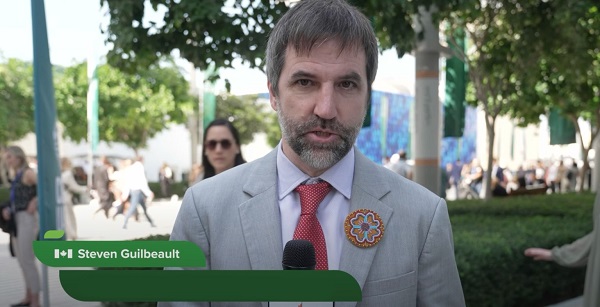
 Censorship Industrial Complex2 days ago
Censorship Industrial Complex2 days agoCanada To Revive Online Censorship Targeting “Harmful” Content, “Hate” Speech, and Deepfakes
-

 Alberta2 days ago
Alberta2 days agoAlberta refuses to take part in Canadian government’s gun buyback program
-
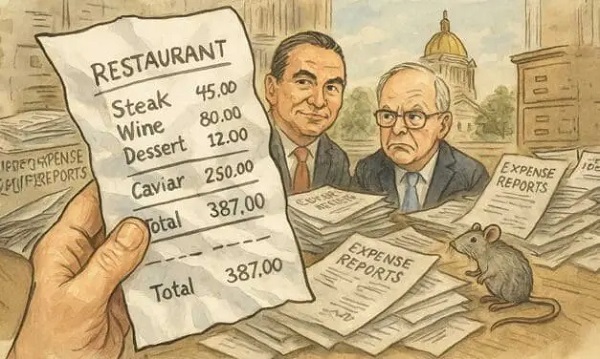
 Business1 day ago
Business1 day agoTaxpayers deserve proof of how politicians spend their money
-

 Business1 day ago
Business1 day agoOttawa’s civil service needs a Chrétien-style reset
-

 Alberta2 days ago
Alberta2 days agoOrthodox church burns to the ground in another suspected arson in Alberta
-

 Fraser Institute1 day ago
Fraser Institute1 day agoAboriginal rights now more constitutionally powerful than any Charter right
-

 Alberta1 day ago
Alberta1 day ago$150 a week from the Province to help families with students 12 and under if teachers go on strike next week
-
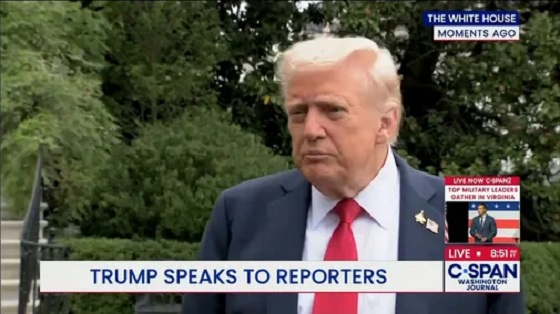
 International1 day ago
International1 day agoTrump gives Hamas four days to choose: peace or obliteration






